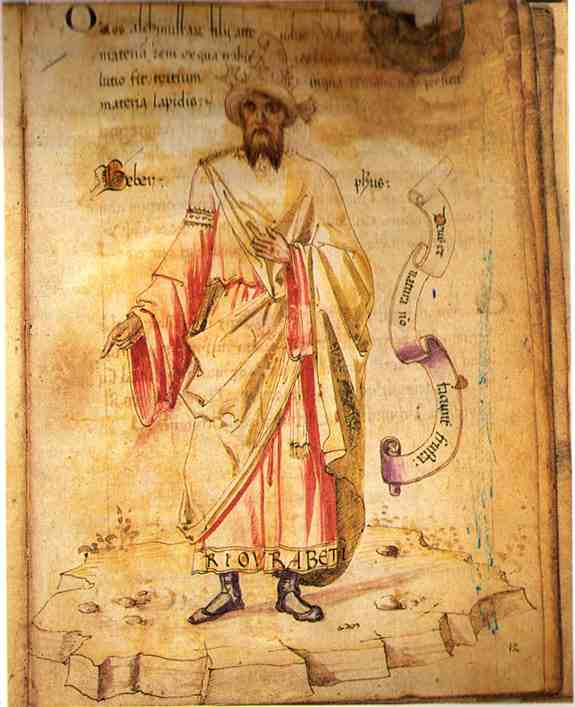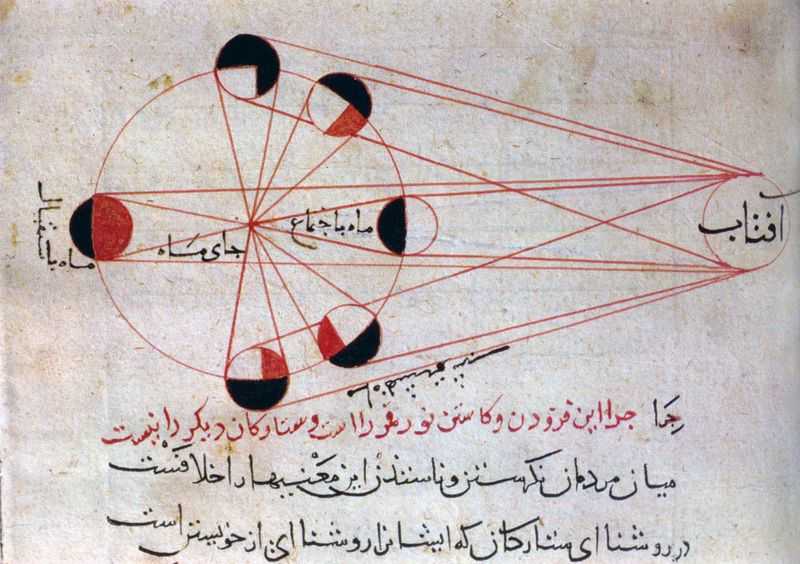“In what is now southern Turkey stand the remnants of a city called Harran. Part of long ago Babylon, Harran was once the site of the Temple of the Moon god-Sin, one of seven temples in seven cities sacred to the seven classical planets. Unlike the other great celestial temples, though, the Temple of the Moon in Harran continued to host astral rites long after the coming of Muhammed. From the 6th until the 11th centuries C.E., a wild Hermetic syncretism bloomed, tended carefully by a people who called Hermes their prophet, and themselves Sabians.”
“In alchemy, Jābir ibn Hayyān was known to have spent time among the Sabians, and his work displays the unique fusion of astrology, Neo-Platonism, Hermeticism, Aristotelianism and Galenic medicine developed in Harran. Jabir’s work hugely influential work spawned a plague of pseudonymous books, and more than 3000 texts have come to be attributed to him.”

“The Sabians of Harran played a crucial but often under-recognized role in the transmission and development of astrological, alchemical and magical traditions. Harran acted as a crucial bridge for the Hermetic arts and sciences, ferrying them from the decay of Byzantine Rome all the way to the shores of Medieval Europe half a millennia later. Many all of the greatest Arabic astrologers, alchemists and magicians can be shown to have spent time in Harran. Without them, astrology would not have survived the West’s dark ages, nor would the complexities of alchemy or the high cunning of astral sorceries have been passed on.

Harran hosted what were perhaps the sole inheritors and practitioners of Babylonian astral magic at a time when both the Christian and Islamic worlds were being steadily purged of them. Yet the Sabians were not pagan fundamentalists. Hellenistic influences abound in what record we have of the Sabians’ practice. They embraced the metaphysics of Neo-Platonism, the experimental philosophy of Hermeticism and the science of Hellenistic astrology, forging a sophisticated framework for the Babylonian astral magick they inherited. The Gayat Al Hakim, also called the Picatrix, a legendary planetary grimoire, emerged from this elegant syncretism, and may testify to its intricacies best.”
For full article at Clavis Journal, see here: http://clavisjournal.com/the-shadow-of-harran/

Reblogged this on Hype Gnosis and commented:
The ancient city of Harran in Biblical Mesopotamia was a crossroads of magic and gnosis.
LikeLike
Interesting, they might have been mentioned by Baha’is. I was a Baha’i in my teens. Although I read Abdu’l Baha’s writings I was probably lacking in historical knowledge to make sense of many of the references.
I did however come to appreciate middle eastern food from that experience and met many wonderful people.
Thanks for the note!
Debra
LikeLike
You’re very welcome, Debra! The term “Sabians” is a bit of a weird one, as it covers quite a lot of people who I’m sure you HAVE heard of, but don’t think of as Sabians, as such.. well, that’s how it is for me, anyway! http://en.wikipedia.org/wiki/Sabians
Jaq
LikeLike
No, it is not Jaq. I had not heard of the Sabians. Thanks for posting this!
Debra
LikeLike
🙂 absolutely – and yet this isn’t as widely known as it deserves to be
LikeLike
They are fascinating people. We owe them a lot, notably the amazing Sabian
symbols.
LikeLike